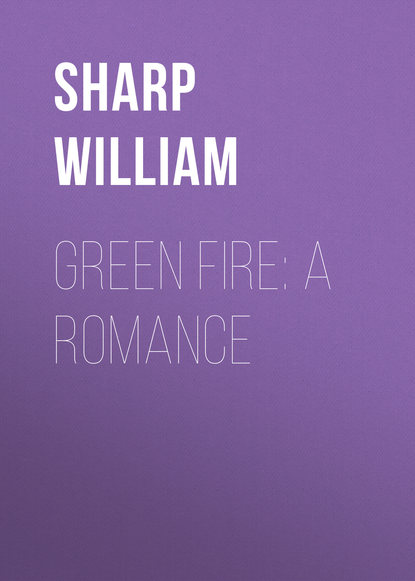 Полная версия
Полная версияGreen Fire: A Romance
It is no idle dream, this; no idle dream that we are a perishing clan among the sons of God, because of this slow waning of our joy, of our passionate delight in the Beauty of the World. We have been unable to look out upon the shining of our star, for the vision overcomes us; and we have used veils which we call "scenery," "picturesqueness," and the like – poor, barren words that are so voiceless and remote before the rustle of leaves and the lap of water; before the ancient music of the wind, and all the sovran eloquence of the tides of light. But a day may come – nay, shall surely come – when indeed the poor and the humble shall inherit the earth; they who have not made a league with temporal evils, and out of whose heart shall arise the deep longing, that shall become universal, of the Renewal of Youth.
Often, in the days that followed their return to Kerival, Alan and Ynys talked of these hopes and fears. And, gradually, out of the beauty of the spring, out of the intensity of the green fire of life which everywhere flamed in the brown earth, on the hills, in the waters, in the heart and brain of man, in the whole living, breathing world, was born of them a new joy. They were as the prince and princess of the fairy tales, for whom every thing was wonderful. Hand in hand they entered into the kingdom of youth. It was theirs, thenceforth; and all the joy of the world.
To live, and love, and be full of a deep joy, a glad content, a supporting hope! What destiny among the stars fairer than this?
They would be harbingers of joy. That was what they said, one to another. They would be so glad with sweet life that others would rejoice; out of their strength they would strengthen, out of their joy they would gladden, out of their peace they would comfort, out of their knowledge they would be compassionate.
Nor was their dream an unfulfilled vision. As the weeks slipped into months, and the months lapsed into years, Alan and Ynys realized all that it is possible for man and woman to know of happiness. Happiness, duties, claims held them to Kerival; but there they lived in fair comradeship with their fellows, with the green forest, with all that nature had to give them for their delight through wind and wave, through shadow and shine, through changing seasons and the exquisite hazard of every passing hour.
To them both, too, came the added joy which they feared had been forfeited at Rona. When Ynys felt the child's hands on her breast, she was as one transformed by a light out of heaven. Alan, looking at mother and child, understood, with all his passion for the intimate wonder and mystery of nature, the deeper truth in the words of one of the greatest of men … "the Souls of the Living are the Beauty of the World."
That sometimes a shadow fell was inevitable. None ever so dusked the sun-way of Alan's mind as when, remote in the forest of Kerival, he came upon the unkempt figure of Judik Kerbastiou, often carrying upon his shoulder a little child whose happy laughter was sweet to hear, in whose tawny hair was a light such as had gleamed in Annaik's, and whose eyes were blue as the north seas and as Alan's were.
Often, too, Alan, alone in his observatory, where he was wont to spend much of his time, knew that strange nostalgia of the mind for impossible things. Then, wrought for a while from his vision of green life, and flamed by another green fire than that born of the earth, he dreamed his dream. With him, the peopled solitude of night was a concourse of confirming voices. He did not dread the silence of the stars – the cold remoteness of the stellar fire.
In that other watch-tower in Paris, where he had spent the best hours of his youth, he had loved that nightly watch of the constellations. Now, as then, in the pulse of the planets he found assurances which Faith had not given him. In the vast, majestic order of that nocturnal march, that diurnal retreat, he had learned the law of the whirling leaf and the falling star; of the slow, æon-delayed comet and of the slower wane of solar fires. Looking with visionary eyes into that congregation of stars, he realized, not the littleness of the human dream but its divine impulsion. It was only when, after long vigils into the quietudes of night, he turned his gaze from the palaces of the unknown, and thought of the baffled, fretful swarming in the cities of men, that his soul rose in revolt against the sublime ineptitude of man's spiritual leaguer against destiny.
Destiny —An Dan– it was a word familiar to him since childhood, when first he had heard it on the lips of old Ian Macdonald. And once, on the eve of the Feast of Paschal, when Alan had asked Daniel Darc what was the word which the stars spelled from zenith to nadir, the astronomer had turned and answered simply, "C'est le Destin." But Alan was of the few to whom this talismanic word opens lofty perspectives, even while it obscures those paltry vistas which we deem unending and dignify with vain hopes and void immortalities.
THE END1
This hymn is taken down in the Gaelic and translated by Mr. Alexander Carmichael of South Uist.



